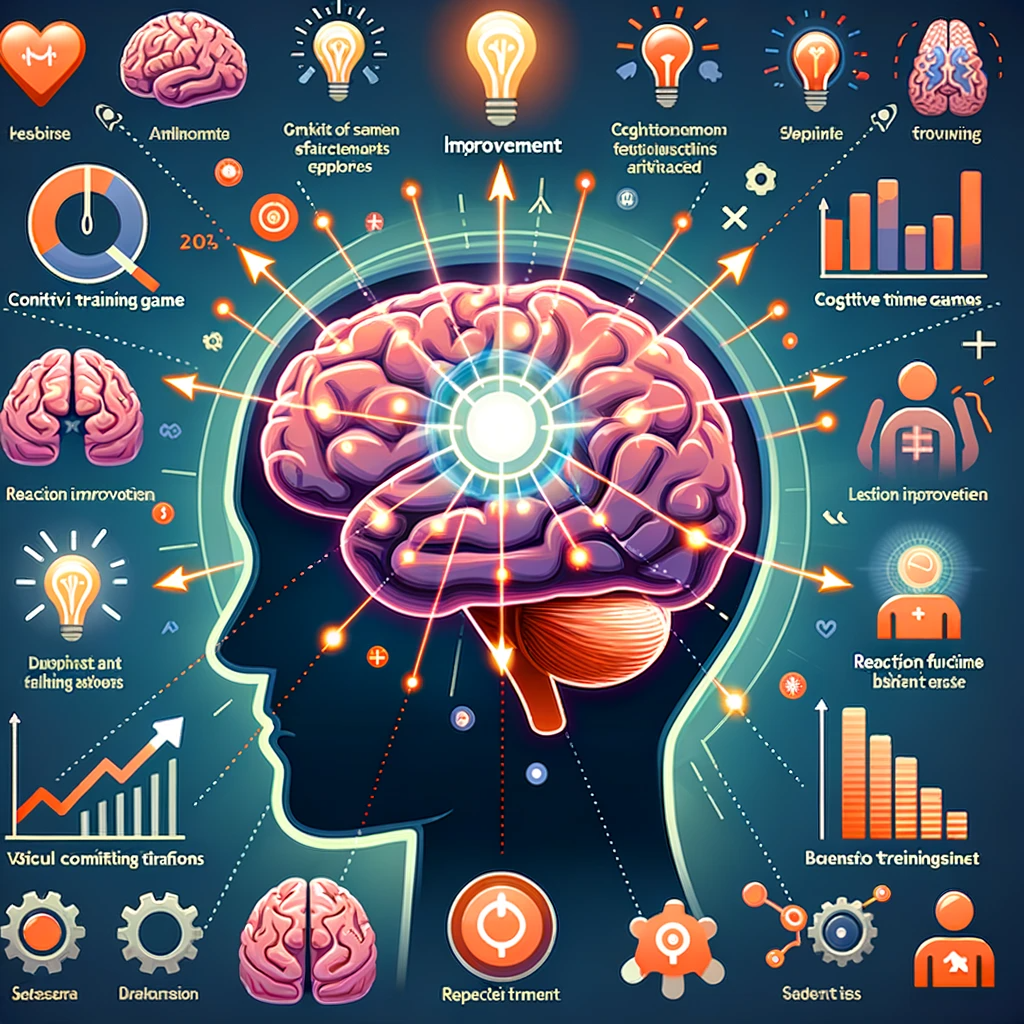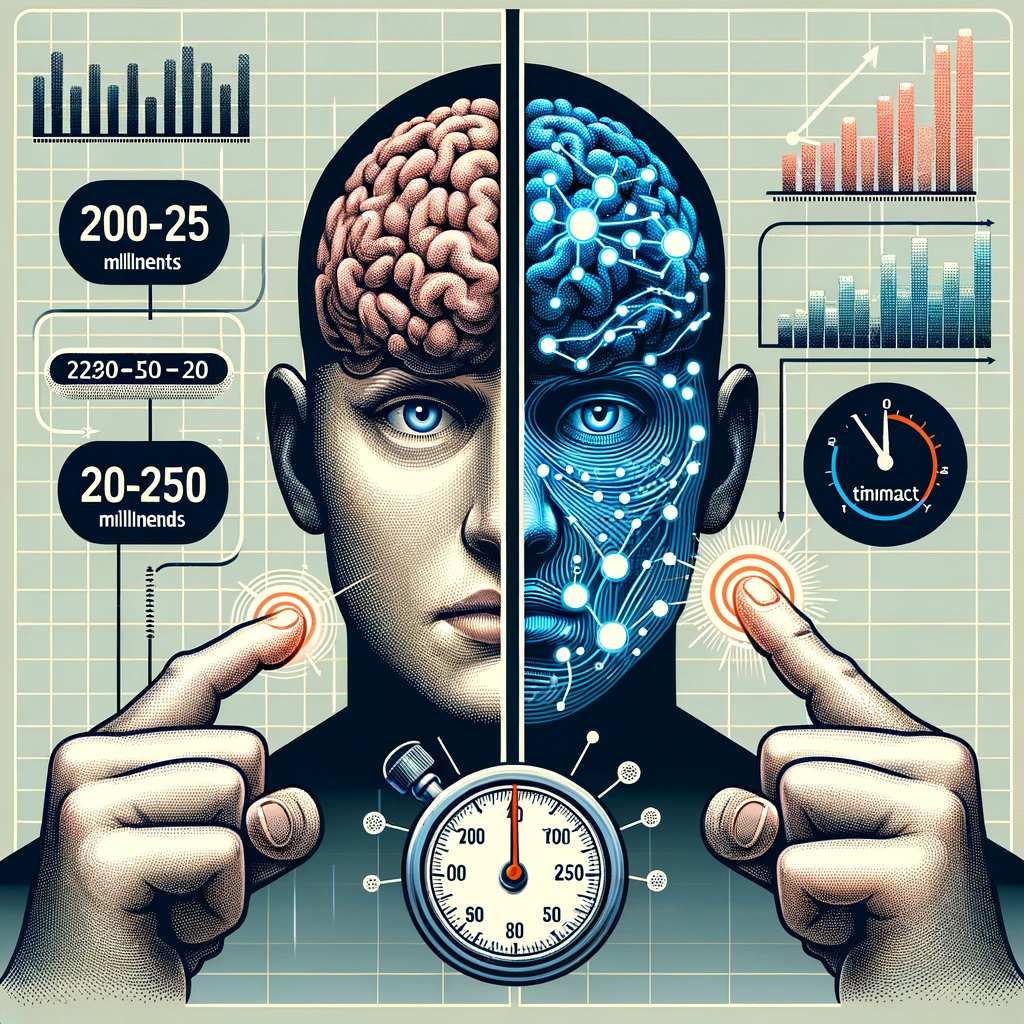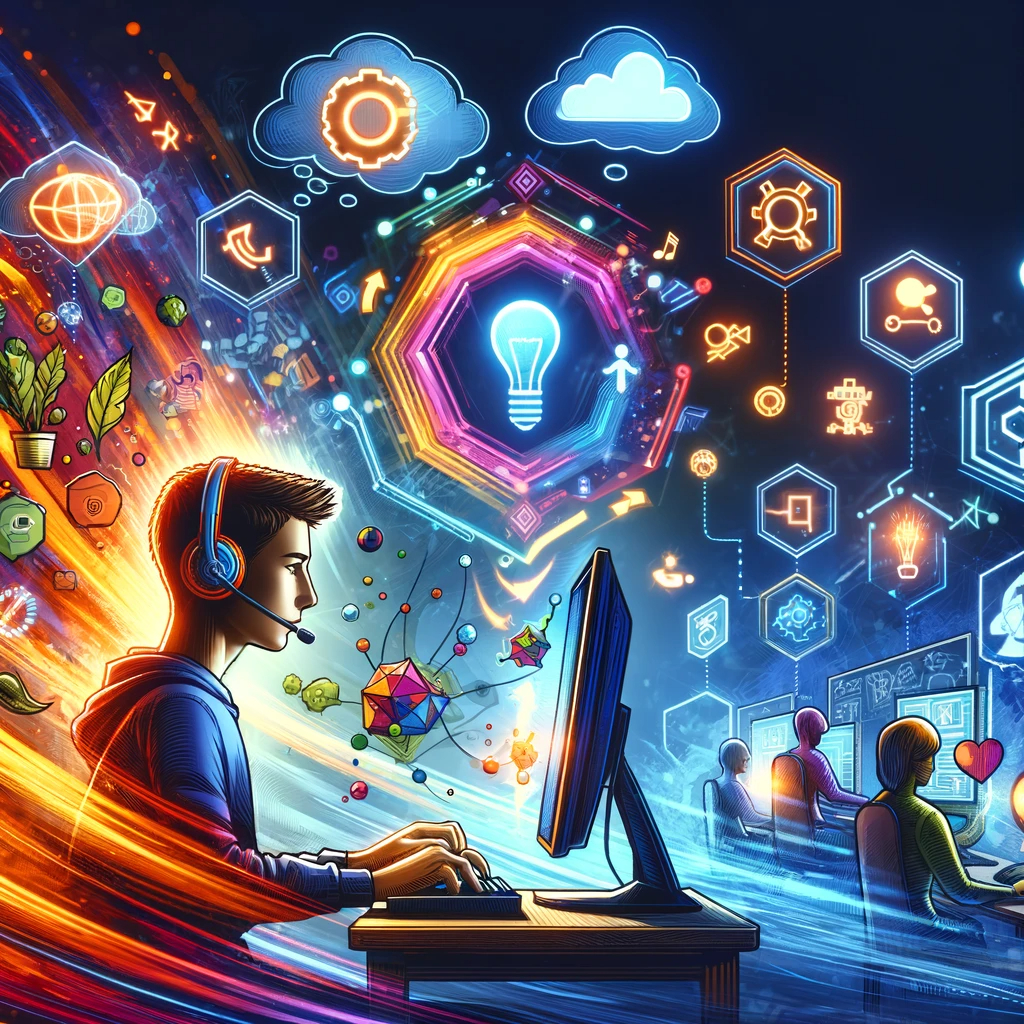What is a Reaction Time Test?
Discover the science behind Reaction Time Tests and how they measure your speed in responding to visual cues. Ideal for athletes, esports enthusiasts, drivers, and anyone keen to sharpen their reflexes. These tests typically involve reacting to visual changes like shifting colors or moving objects on screen. With an average human reaction time ranging from 200-250 milliseconds, our engaging tests offer an exciting challenge and an opportunity to improve. Dive into our fun and interactive tests designed to not only assess but also enhance your reaction skills, essential for critical decision-making in high-pressure situations.
How To Use Our Reaction Time Test Tool?
Simple Mode:
1. Start the simple mode reaction test, click the "Start Test" button.
2. Wait for the background color to change from green to red and display "Click Now".
3. Click the button or press the space bar.
4. Get the reaction time score (milliseconds).

Challenge Mode:
1. Start the challenge mode reaction test, click the "Start" button.
2. As soon as any object turns blood red, immediately mouse click it to change it back to its original color.
3. Get multiple reaction time scores and the average value (milliseconds).

What is good reaction test result?
Typically, human reaction times fall within the 200 to 250 milliseconds range. However, it's important to note that the total duration recorded in a Reaction Time Test encompasses not only the brain's processing speed but also the physical response time, such as the action of pressing a button. Factors influencing either cognitive processing or motor response can significantly impact your overall performance. Our tests are designed to provide a comprehensive assessment, helping you understand and improve these key components of reaction speed.

How to Improve Your Reaction Time?
1. Regular Exercise
Engaging in physical activities, especially those that require quick reflexes like table tennis, basketball, or martial arts, can help enhance your overall reaction time.
2. Adequate Sleep
Ensuring you get enough quality sleep is crucial. Lack of sleep can slow down your reaction time significantly.
3. Healthy Diet
Consuming a balanced diet rich in nutrients can improve brain function and, consequently, reaction time. Foods rich in omega-3 fatty acids, like fish, and those high in antioxidants, like berries, are particularly beneficial.
4. Mental Exercises
Brain training games or activities that require quick thinking can help. This can include video games that demand fast responses or even puzzle games that require rapid problem-solving.
5. Stay Hydrated
Dehydration can impair cognitive function and slow down reaction time. Make sure to drink enough water throughout the day.
6. Reduce Stress
High stress levels can negatively impact your reaction time. Techniques like meditation, yoga, or even simple breathing exercises can help in reducing stress.
7. Practice Specific Skills
If you want to improve reaction time for a specific activity, practice that activity regularly. For instance, if you're a gamer, playing fast-paced games can help; for sports, drills that mimic game situations are beneficial.
8. Visual Exercises
Improve your visual tracking and processing speed with exercises like following a moving object with your eyes or quickly identifying objects that appear in your peripheral vision.
Why Play Our Reaction Time Test Game?

Fun Meets Functionality
Dive into a game that’s as entertaining as it is enriching. Our reaction time test is ingeniously designed to challenge you in delightful ways while enhancing your cognitive reflexes. Engage in a fun-filled experience that motivates frequent practice and sharpens your alertness.

Science-Backed Training
Discover the cognitive science principles that underpin our game. Regular interaction with our test can lead to real cognitive benefits, such as quicker decision-making and improved processing speed. It’s not just a game – it’s a brain workout crafted to make a difference in your day-to-day life.

Learning Through Play
Embrace the power of play to learn vital skills. Our game teaches you to make swift decisions under pressure, mirroring real-life situations where quick thinking is paramount. It’s an enjoyable way to boost your reaction time while providing measurable improvements in your response capabilities, giving you the edge in every walk of life.
How Reaction Time can be Beneficial in Daily Life
1. Enhanced Safety in Driving
Quick reaction time is essential for drivers to respond promptly to sudden changes in traffic conditions, unexpected obstacles, or hazardous situations on the road. This can mean the difference between avoiding an accident and being involved in one.
2. Improved Sports Performance
Many sports, such as tennis, soccer, and basketball, require rapid responses to the movements of the ball or other players. A better reaction time helps athletes perform more effectively, making quick decisions and movements during the game.
3. Efficiency in Everyday Tasks
Good reaction time can make everyday activities more efficient and safer. This includes tasks like catching a falling object, navigating through crowded areas, or responding quickly to potential hazards in your environment, like slipping on a wet floor.
4. Enhanced Cognitive Functioning
Fast reaction times are often linked with sharper cognitive abilities. This can translate into quicker problem solving, faster adaptation to new information, and improved multitasking skills. These benefits are particularly useful in both professional settings and in managing personal responsibilities.

Question of Accuracy
In today's digital age, numerous individuals engage in various reaction time tests available on their computers. While this activity is entertaining, its utility for scientific analysis is questionable. The main issue stems from the variability in computer and monitor specifications, such as latency and video card speed, which hampers the standardization of test results. For instance, older LCD screens might exhibit a latency of up to 18ms, in contrast to more recent models with a latency of approximately 2-4ms. Consequently, advanced screens can display information nearly 14ms faster than their slower counterparts. Additionally, the performance of a computer's video card plays a crucial role; slower cards may cause noticeable delays between different sections of the screen. Therefore, it's advisable to interpret these test outcomes with caution.

Elements Influencing Reaction Time
1. Age
Generally, reaction time slows with age. Children and young adults often have the fastest reaction times, which begin to slow in middle age and further in older age.
2. Fatigue
Tiredness can significantly impair reaction time. Both physical fatigue and mental exhaustion can lead to slower responses.
3. Health and Fitness Level
Overall health and fitness can impact reaction time. Healthier individuals with better cardiovascular fitness often have quicker reaction times.
4. Cognitive Function
Higher levels of cognitive function are associated with better reaction time. This includes factors like memory, attention, and processing speed.
5. Stress and Anxiety
High levels of stress or anxiety can either speed up or slow down reaction time, depending on the individual and the situation.
6. Substance Use
The consumption of alcohol, drugs, or even certain medications can impair reaction time. Stimulants might temporarily decrease reaction time, while depressants can increase it.
7. Nutrition and Hydration
Poor diet and dehydration can affect cognitive function, including reaction time. Balanced nutrition and adequate hydration are important for optimal brain performance.
8. Training and Practice
Regular practice of activities that require quick responses can improve reaction time. This includes certain sports, video games, and specific cognitive exercises.
9. Sensory Input
The type and clarity of sensory input (visual, auditory, tactile) can affect how quickly one can react. For example, a clear visual signal can result in a faster reaction than an ambiguous one.
10. Genetics
There's also a genetic component to reaction time, with some individuals naturally having faster or slower reactions than others.
About Us
At Reaction Time Test, our commitment is to empower individuals in enhancing their cognitive capabilities. Our diverse team, consisting of renowned neuroscientists, experienced psychologists, and innovative gaming professionals, works tirelessly to develop scientifically-supported, engaging tools for cognitive training. Our core mission revolves around making cognitive development both accessible and enjoyable for a wide range of users. Whether you're a dedicated athlete aiming for quicker reflexes, a professional gamer seeking a competitive edge, or someone keen on maintaining mental sharpness, our tailored tools are designed to assist in achieving your personal objectives. Numerous users have attested to significant improvements in focus, accelerated decision-making abilities, and enhanced performance across various professional and daily life scenarios.